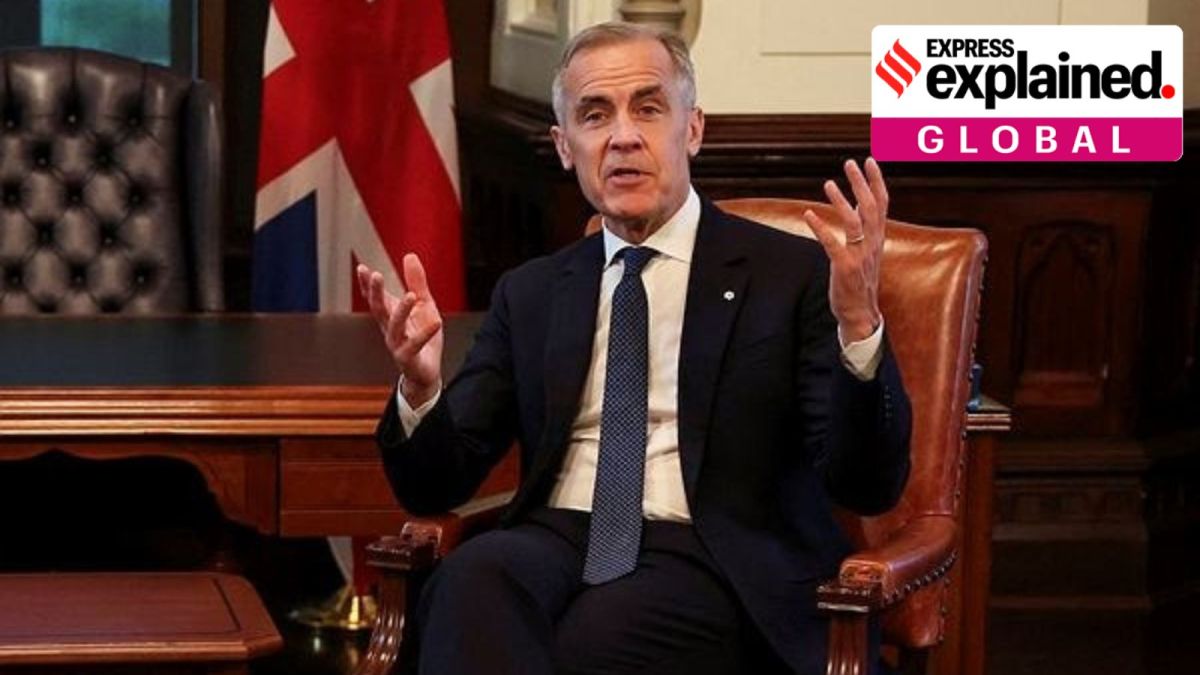5 things to look out for in this year’s G7 Summit in Canada
The G7 Summit in Canada comes at a momentous time, with Canadian PM Mark Carney taking measures to ensure US President Trump does not stage a recall of the 2018 Quebec G7 Summit. Here is what to know.

The annual G7 Summit commenced in Alberta, Canada, on Sunday (June 15), amid concerns over the escalating conflict in the Middle East. US President Donald Trump said he hoped a deal on Iran restricting its nuclear program would soon be signed, while responding to reporters before a meeting with Canadian Prime Minister Mark Carney on Monday. “Sometimes they have to fight it out,” he added.
Canada is this year’s G7 Summit chair, and the event will be attended by the leaders of member nations France, Germany, Italy, Japan, the UK and the US. Additionally, Carney has invited the leaders of non-member countries India, Australia, Brazil, Mexico, South Africa, South Korea and Ukraine, as well as the head of NATO.
Here are five things to look out for at this year’s summit.
1. The Trump wild card
The last time a G7 Summit was held in Canada, Trump was the US President and in attendance. His presence at the 2018 Quebec summit came on the heels of his country announcing steel and aluminium tariffs on Canada, Mexico and Europe. The image of him sitting with his hands crossed, while a group of leaders led by German Chancellor Angela Merkel confronted him, would define the chaos that ensued.
Trump had then demanded that Russia be re-admitted into the grouping, following the expulsion after its annexation of the Crimean peninsula in 2014. He left the summit early while denouncing then-Canadian PM Justin Trudeau as “very dishonest and weak”, and ordered the US delegation in attendance not to sign the joint communique.
The run-up to this year’s summit has been doubly dramatic. He announced tariffs on all American trading partners in his second term, including its G7 allies. He announced fentanyl tariffs on Mexico and Canada, and accused both nations of doing little to tackle illegal immigration to the US. He has accused South Africa – not a member but an attendee this year – of doing little to protect its white, Afrikaner citizens against a “genocide”.
Trump also repeated comments about making Canada the “51st state” of the US, much to the consternation of Canadians. These comments helped swing votes away from the then-frontrunner, Conservative candidate Pierre Poilievre, and towards the Liberal Party’s Carney in the elections held earlier this year.
2. ‘Trump-proofing’ the summit
Mark Carney’s presidency of the G7 will seek to position him as a credible leader who can stand up to Trump without making significant concessions. He had promised to position Canada as the strongest G7 nation, and reduce its dependency on the US. The Iran-Israel conflict may delay this ambition for the time being.
As G7 chief, Carney has taken steps to “Trump-proof” the summit, doing away with the customary joint communique, and opting instead for six short joint statements on wildfires, critical minerals and other agenda items.
Ahead of the summit, Trump and Carney will hold a brief meeting, where the Canadian PM hopes to build on the cordial interaction they had last month. According to Canadian officials who spoke to CBC News, the talks will likely continue deliberations on a trade deal between the US and Canada, pushing for zero tariffs on steel, aluminium and automobiles.
Carney told Sky News that what he learned from 2018 “is to be consistent – say the same thing in private as you do in public, say the same things after the summit as you do during the summit.”
3. Escalating conflict in the Middle East
When Carney released the G7 Summit agenda on June 7, tensions between Israel and Iran had not yet escalated to the threat of outright war. On Friday (June 13), Israel launched attacks into the heart of Iran’s nuclear facilities, killing senior military generals as well.
The latest conflict erupted over a failure to strike a deal over Iran’s nuclear programme. German Chancellor Friedrich Merz advocated for restricting Iran’s nuclear capabilities, insisting on Israel’s right to defend itself and avoiding an escalation of the conflict, Reuters reported.
4. The war between Russia and Ukraine
The continuing war between Russia and Ukraine has been listed as an agenda item, with Ukrainian President Volodymyr Zelenskyy in attendance. Trump has long expressed a reluctance to continue engagement in the war, and called Zelenskyy “ungrateful” at a meeting in the White House this February that resulted in a blow-up.
NATO and European nations, on the other hand, have rallied their support for Ukraine. Canadian FM François-Philippe Champagne said that Ukraine’s presence was meant to “send a strong message to the world” that the G7 would continue to support Kyiv in the war.
5. India in attendance
After months of speculation, Carney extended an invitation to India at the start of the month, signalling a thaw in the strained ties between the two countries. According to a statement issued by Carney’s office, he invited Indian Prime Minister Narendra Modi on a phone call on June 6, with the two agreeing to stay in touch.
In September 2023, then-Prime Minister Justin Trudeau accused India of orchestrating the killing of the Sikh separatist leader, Hardeep Singh Nijjar, on Canadian soil. The resulting row saw both countries expel their top envoys and senior diplomats.
The invitation to PM Modi has proven to be divisive in Canada, with members of the Canadian Sikh community condemning the move. However, Carney sought to downplay the issue, saying it was not appropriate to comment on an ongoing legal case when asked about suspected Indian involvement. The statement said Carney and Modi agreed to “continued law enforcement dialogue and discussions addressing security concerns” regarding the allegations.